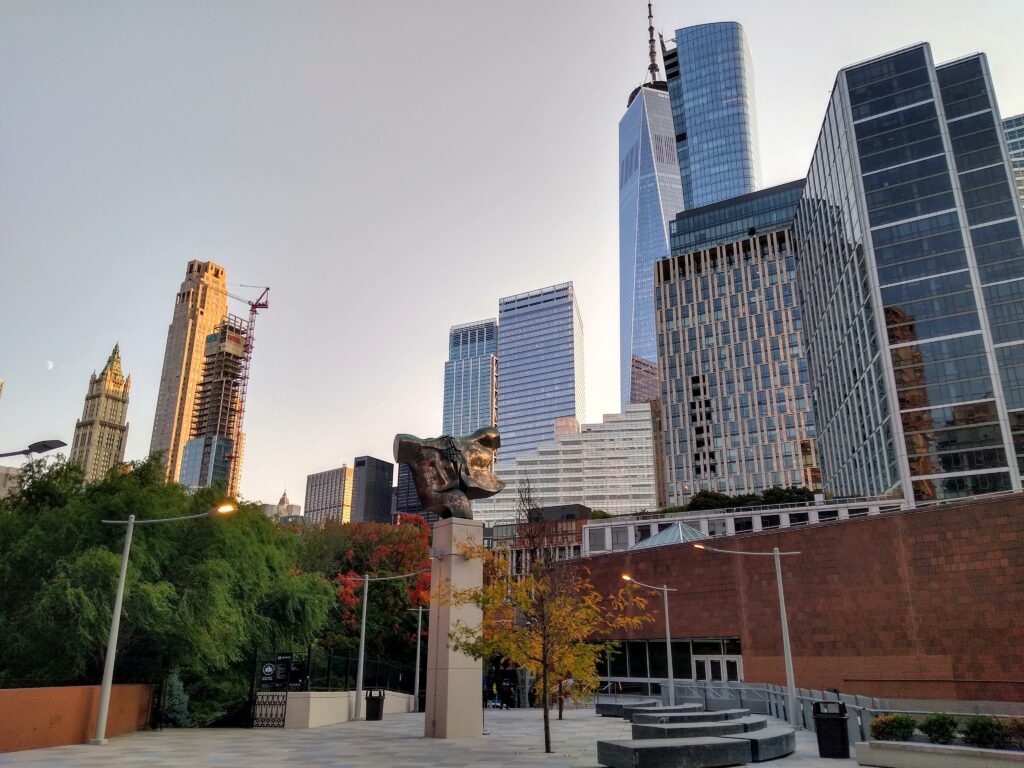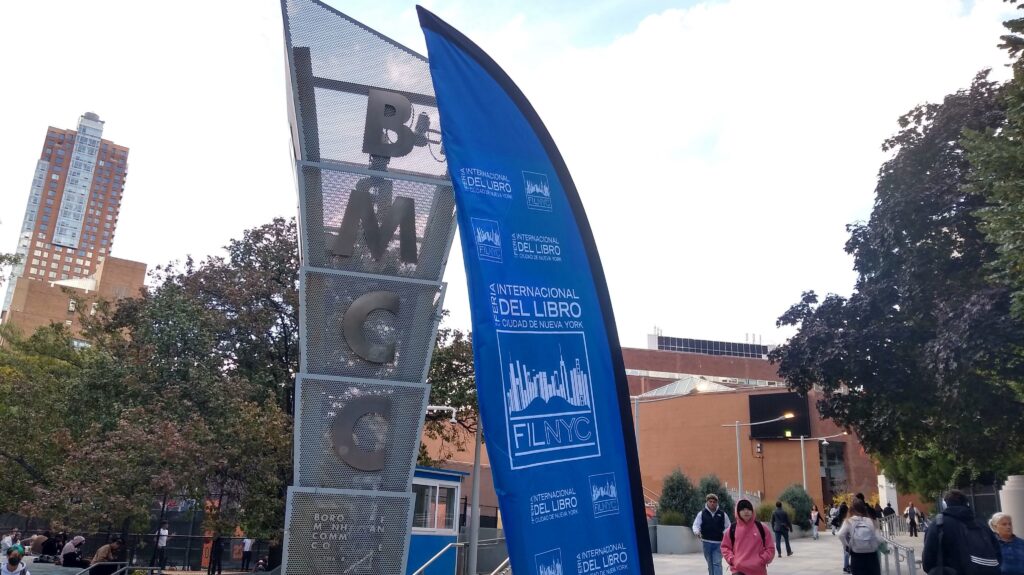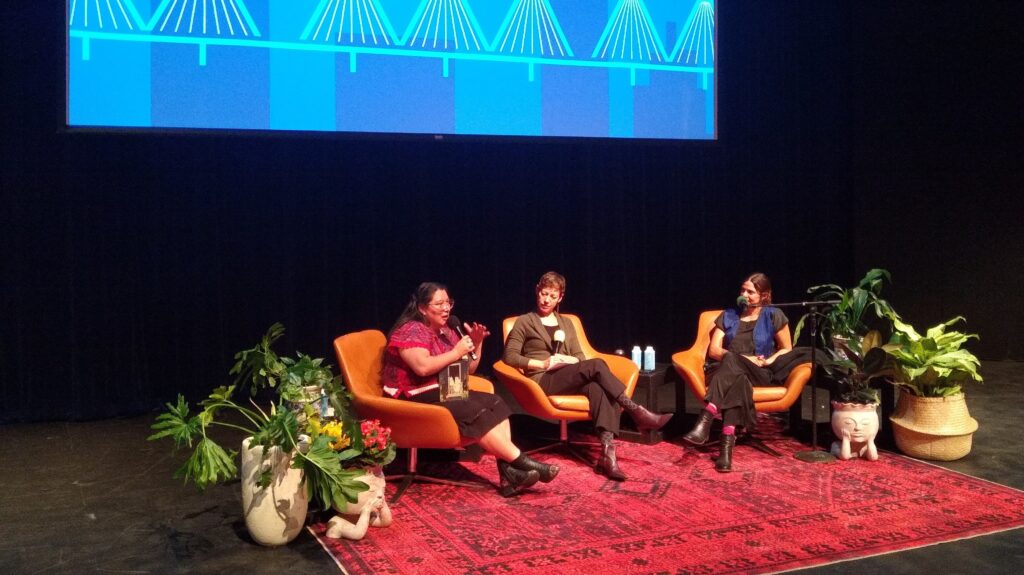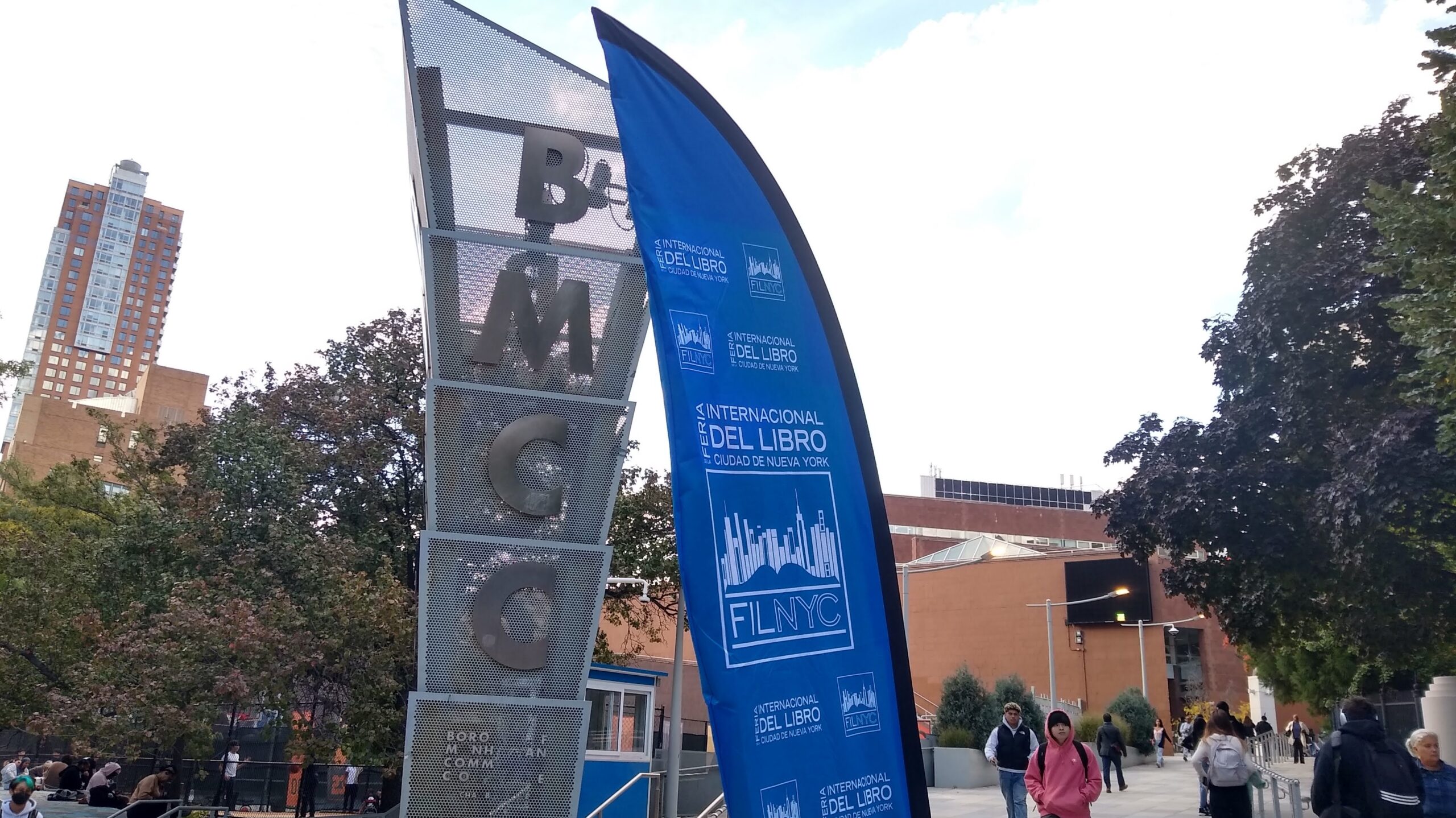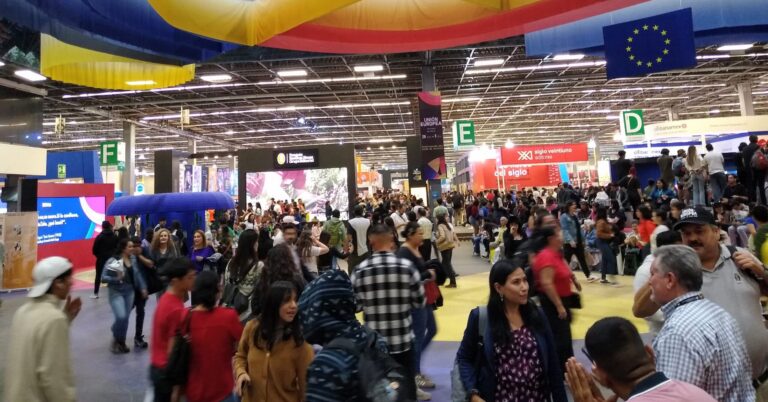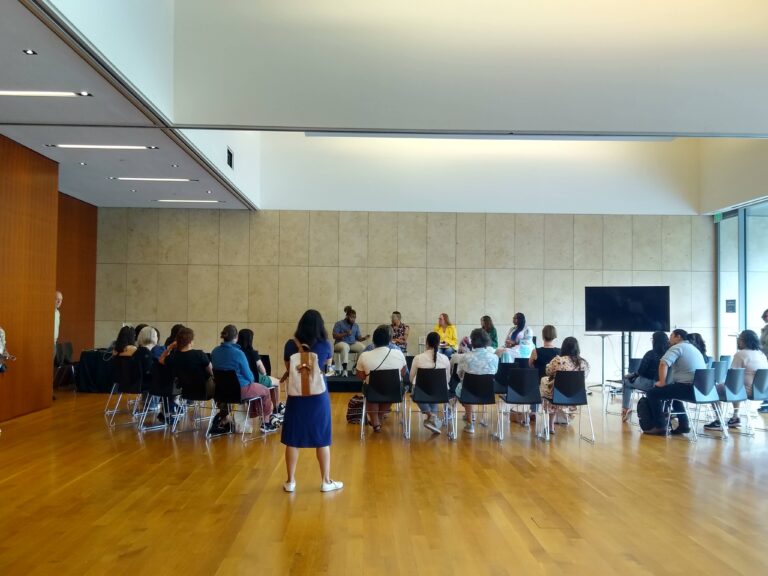Keep writing! 5 tips from FILNYC
Whenever I share the same space with other authors, whether published in English or Spanish, it fascinates me because it is like breaking the fourth wall. Such an occasion occurred at the 2024 International Book Fair of New York City. We were so close in space and time—in the same auditorium at the same time—, yet at the same time, orbiting different suns. Nevertheless, just as the stars do, our paths crossed, we aligned, and the otherness disappeared. Before continuing our respective paths, I could collect the following fragments:
There is no formula
Throughout the fair, storytellers, novelists, and even radio journalists agreed that no single method or formula exists for writing and producing good work. Magalí Etchebarne, an Argentinian writer and poet, surprised me when she said: “I don’t know how to write a story” (“No sé cómo escribir un cuento”). Rather, she imagines and thinks about how to join pieces together after an explosion. For Liliana Colanzi, a Bolivian writer, her writing is disorganized and intuitive, forming and deforming the story.
Read and enjoy the unexpected
Even though there’s no exact method, you still need to read! Regarding negative book reviews, Sara Torres brought up the desire to identify. Reviewers basically complain that they cannot identify with any of the characters, but when she was a child, she always loved reading books she didn’t understand. Furthermore, Ana Diz recalled how much she liked the word zape when she read it for the first time, without knowing what it meant. Even the audience laughed when the author raised her finger and yelled “Zape!”
Be passionate
According to Nadia Reiman, editor of the podcast This American Life, what gives an episode that special touch is the journalist’s curiosity and energy. The host of Radio Ambulante, Daniel Alarcón, has had experiences in which he has not liked a script, yet the author was able to change his mind. It’s the author’s obsession and passion that make all the difference.
There are many paths to literature
People come to literature in many ways. Julia Navarro was a journalist for more than 35 years, gaining what she calls “an indispensable tool” (“una herramienta innumerable”) and the privilege to be able to live many lives. Nevertheless, life surprised her and now she dedicates herself to writing novels. In Armando Lucas Correa’s case, he worked for Hispanic media for over two decades and then found the novel by accident. We must keep an open mind to the possibilities!
Don’t limit yourself, language isn’t easy
Leire Bilbao, a Basque poet, captivated me with the line: “Swimming inside a language/ is not that easy” (“Nadar dentro de un idioma/ no es tan fácil”) (translation my own). Even though her poem “Swimming inside home” (“Nadar dentro de casa”) is not a treatise on language, it hits the year’s theme on the head: “A meeting point for Spanish and other languages” (“Un punto de encuentro para el español y otras lenguas”). For example, in one of the panels, Yásnaya Aguilar and Valeria Luiselli addressed the spectrum of their experiences learning languages, from corporal punishment to joyous learning. It’s not easy whether it’s a native or foreign language; we are always learning. Furthermore, as Aguilar stated, it’s not solely about language but the political processes surrounding it. Despite that, Luiselli works to inscribe herself into Spanish, just as Aguilar works towards her goal of becoming a master of the word in Mixe.
I hope this advice from the 2024 FILNYC will be useful for you, just as it has already been for me, wherever literature may take you. I hope our paths will cross again soon in the next post.
